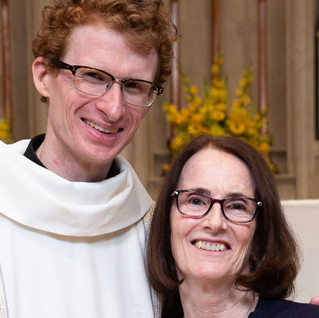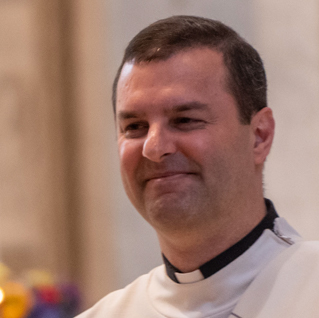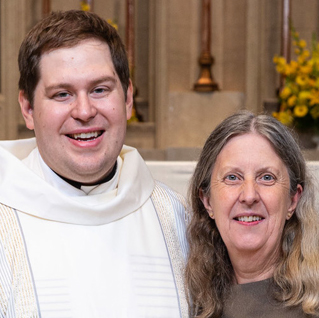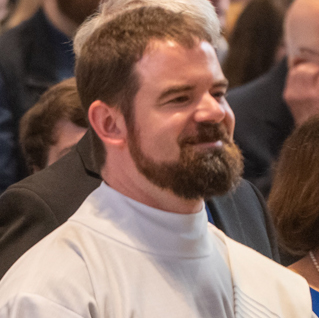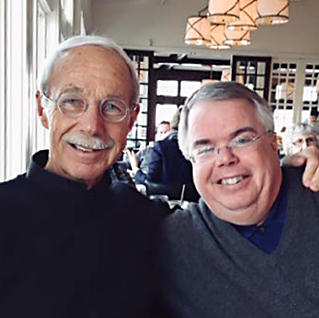
A Life-changing Mentor and a Loyal Friend:
Fr. John Schlegel, SJ
By Grace Rice, Assistant Director of Communications
Because Jesuits take a vow of poverty, the gifts they give others are not often material. Father John Schlegel, SJ, gave out a token here and there, like the statue of St. Ignatius he gave his former student and lifelong friend Bill Kunkel. While the statue is meaningful to Kunkel, Fr. Schlegel’s greatest gift to him—and many others—was his time, mentorship, and companionship.
Kunkel was an undergraduate at Creighton University when he first met Fr. Schlegel after enrolling in one of Fr. Schlegel’s political science classes as a pre-law student. When Kunkel realized being engaged was key to success in the class, he and Fr. Schlegel began to form a bond, one that would transform from mentor and mentee into a lifetime of friendship. The statue Fr. Schlegel gave him remains a source of inspiration, but the gift of Fr. Schlegel’s time had an even greater impact on Kunkel’s life.
“John just pushed me at a time when I was probably reluctant to be pushed,” says Kunkel. “Or maybe I thought I had all the answers and didn’t need to be pushed. I think that’s what good mentors do.” Kunkel went on to attend Harvard Law School (crediting Fr. Schlegel as one of the reasons he went there) and today serves as General Counsel for the Archdiocese of Chicago.
Kunkel is just one of many students whose lives’ trajectories were shaped by Fr. Schlegel during his tenure in higher education. Another mentee-turned-friend, Steve Bruckner, also credits Fr. Schlegel as a reason he went to law school at Georgetown University. Bruckner and many other students came to know Fr. Schlegel as “Padre.”
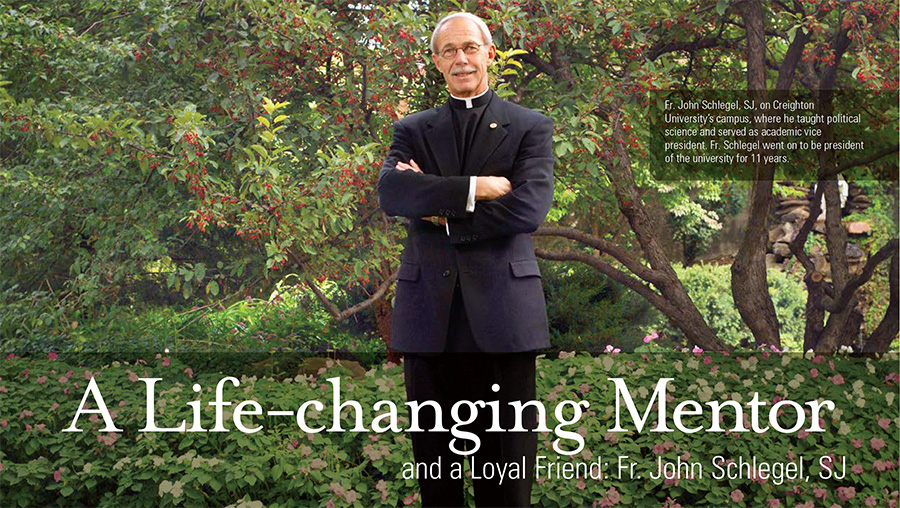
Richard Doyle’s parents had intended for him to go to medical school when he came to Creighton. He ended up meeting Fr. Schlegel, as the two happened to live in the same residence hall. Doyle says, “Padre helped those of us who simplyneeded direction.” Seeing that Doyle wasn’t excelling in his science classes, Fr. Schlegel suggested he take some of his political science classes to broaden his education. After seeing him struggle in a physical chemistry class, Fr. Schlegel decided to call Doyle’s father. They discussed Doyle’s future and decided medical school was unlikely. After the call, Fr. Schlegel came to Doyle’s room and told him he would be starting law school the following Monday. In a single moment, Fr. Schlegel had entirely pivoted Doyle’s plans to go to medical school to a future in law. “His role in my life was unique and irreplaceable,” Doyle says.
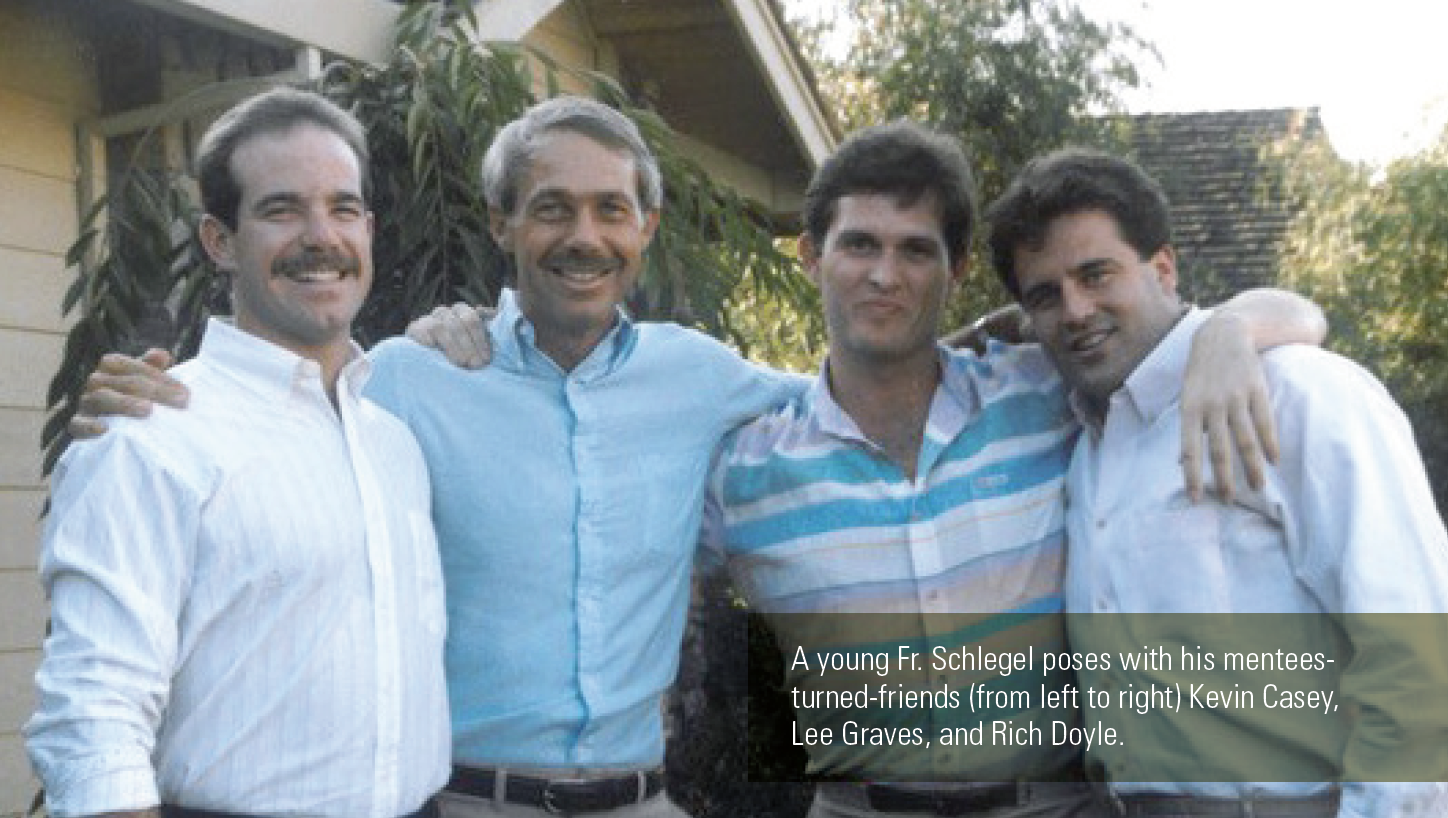
Peter Longo, a professor at the University of Nebraska at Kearney and editor for Great Plains Research, also found Fr. Schlegel’s mentorship instrumental. With Fr. Schlegel’s guidance, Longo chose to pursue political science instead of medicine, which had been the expectation for him in a family of doctors and nurses. Longo says, “After a few conversations with Father, I was on a path of study that fit my spirit and intellect. His love, confidence, and strategic directives saved me in 1977 and still guide me today.”
Such stories abound from over the course of Fr. Schlegel’s many years in Jesuit higher education (as teacher of political science and assistant academic vice president at Creighton, 1978-1982; academic dean of Rockhurst College, 1982-1984; dean of arts and sciences at Marquette University, 1984-1989; executive and academic vice president at John Carroll University, 1989-1991; president of University of San Francisco, 1991-2000; and president of Creighton University, 2000-2011).
Another example comes from Trisha Sciortino Hagemeyer, for whom Fr. Schlegel served as freshman advisor at Creighton. Although she missed him when he left for his assignment at Rockhurst, she kept in touch. And, when she was applying to physical therapy programs, she wrote to Fr. Schlegel. Before she knew it, she had an interview and was on the alternate list at Rockhurst. Hagemeyer, who went on to graduate with honors, says, “Becoming a physical therapist was and still is a vocation for me. I truly believe that if not for Fr. Schlegel and divine intervention I would not have been able to fulfill that vocation.”
In February of 2015, Fr. Schlegel was diagnosed with inoperable pancreatic cancer. He calmly accepted his fate and chose not to undergo chemotherapy or radiation treatment. He chose to hold “living wakes” across the country to say goodbye to those he loved. It was at the end of his life that he began to realize how many lives he’d changed for the better.
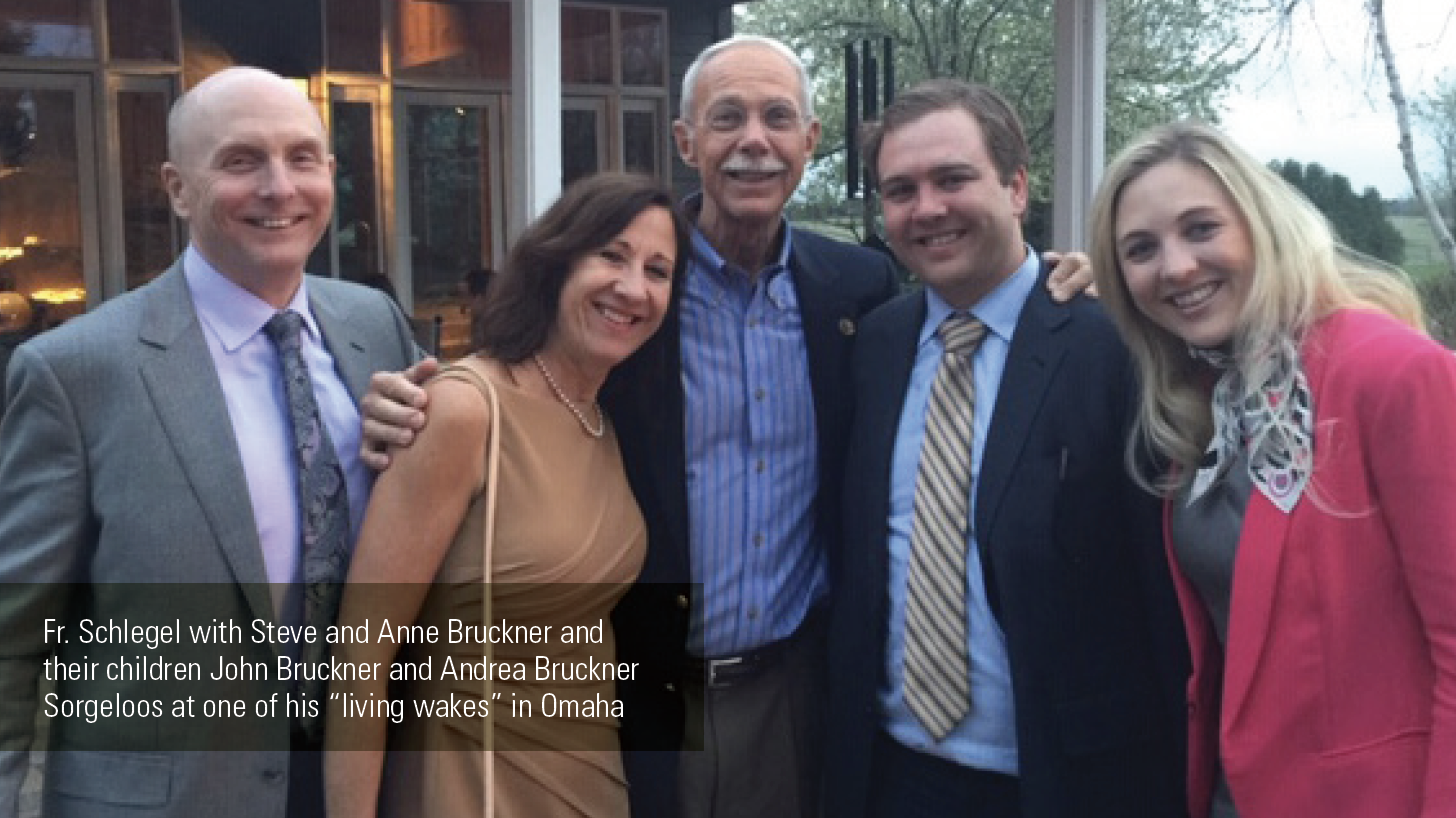
In an interview with the Midwest Jesuits magazine in 2015, Fr. Schlegel spoke of being approached by a former advisee from Marquette whom he had encouraged to study economics. The man could not stop telling his kids, “This is the guy who put me into economics, and now I’m a financial analyst. Without that advice, we wouldn’t be here, and you wouldn’t be here. We wouldn’t have this life we have.” While Fr. Schlegel had known he was a good advisor, these incidents were when he began to see, in his words, “the little things you did that you don’t realize touched people.”

